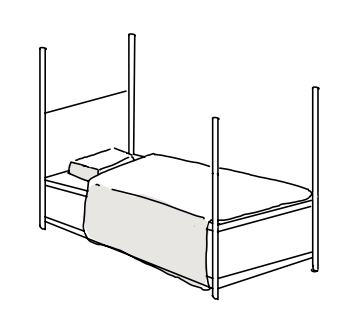Should High School Athletes Be Drug Tested?
PROS:
The use of performance-enhancing drugs, or doping, in high school sports is running rampant. According to the Mayo Clinic, 1 in 20 high school athletes have or are using drugs in order to increase muscle mass. Common ergogenic aids, or performance enhancing drugs (PEDs), include creatine, anabolic steroids, and Human Growth Hormone (HGH). In this day and age, athletics are growing to be even more competitive, and as a result, the rate of doping is increasing. For this reason, high school athletes should be drug tested because of health implications and fairness in sports.
PEDs are extremely dangerous, and even deadly. Some drugs include anabolic agents, which have similar effects as testosterone on the body. Some symptoms include baldness, acne, liver damage, stunted growth and the disruption of puberty in children. The most well known trait of anabolic steroids is “roid rage,” which involves an increase in abnormal sexual and criminal behavior. Withdrawals from anabolic steroids can result in depression and in some cases, suicide. The second most popular ergogenic aid is artificial growth hormones or growth factors. Examples include erythropoietin (EPO), insulin, and human chorionic gonadotrophin (HCG). Negative effects of a concentrated amount of a growth hormone include hypertension, blood cancers, Leukemia, Anemia, strokes, heart attacks, or even loss of vision. The reason why high school athletes use PEDs is to attain muscle mass or to enhance physical attributes that are beneficial to the type of sport in which they participate. All of theses attributes contribute to negative long term effects in terms of how the body functions and basic durability.
The use of ergogenic aids in sports is simply not fair. The basic principle behind sports is to actively compete and test one’s own physical stamina. Athletes who use PEDs are also cheating themselves from a fair victory. It does not make sense to cut corners in order to gain an athletic edge when the entire philosophy of sport is to physically and actively compete against another person or team. Some parents, according to a study conducted by the Sun Newspaper in the south of Florida, even condone the use of PEDs in sports in order to gain an edge against their competition. This is negative because parents should not be condoning the use of drugs in any way. Also, according to the U.S. Anti-Doping Association (USADA), most athletes start using ergogenic aids in high school.
Overall, PEDs have negative effects and foster a bad environment in sports. Even though organizations such as the USADA and IFAA already test for drugs professionally, high school athletes should also be subject to these tests. The long-term benefits outweigh the initial cost of the testing. Fairness and good health would both emerge from the testing of high school athletes. With sports in high school being more competitive than ever, athletes need to be tested.
CONS:
Normally, only professional athletes are subjected to random drug tests, and the idea of conducting drug tests at the high school level is absolutely absurd. The public school system should not be permitted to carry out drug tests on high school athletes because this violates the Fourth Amendment, tests can prove to be inaccurate and unfair, and funds are simply insufficient.
The Fourth Amendment clearly states that unreasonable searches and seizures, like drug tests, are a clear violation of U.S. citizens’ rights. What student athletes are doing on their own time is private, and unnecessary testing violates their rights. Testing student athletes randomly under suspicion of the use of drugs is unreasonable when there is no apparent evidence. There is no point of in violating a student’s rights to determine whether or not an athlete might be under the influence of performance enhancing drugs (PEDs). Although some may point out that professional athletes are legally subject to drug tests, unlike students, they sign a contract allowing the tests to occur.
Not only do drug tests violate the Fourth Amendment, but they are also not always 100% accurate. The reason to administer drug tests is to determine whether or not an athlete is under the influence of any PEDs. However, in some cases, certain foods can affect the outcome of an individual’s results. For instance, poppy seeds show up on a drug test up to 48 hours after intake. Heroin, morphine and oxycodone are all narcotics derived from poppies, so consuming poppy seeds prior to a drug test may bring up a positive result for drugs the student did not take. In addition, some students are prescribed certain medications that can result in a false positive. An example would be the ADHD medicine called Adderall. Adderall is most likely to show up on a drug test as a stimulant, as it affects chemicals in the brain and nerves that contribute to hyperactivity and impulse control. A student who receives a false positive due to their Adderall medication would not be only subjected to humiliation but to serious punishment as well.
When it comes to public schools, money can always be an issue. For some schools, they can barely afford new textbooks and school supplies, yet they somehow should implement drug tests. For schools who struggle to supply essential things to their students, like new technology, drug testing would only be another costly program that would require unnecessary funding. According to the Connecticut Department of Mental Health and Addiction Services, the general costs of a urine drug test can be between $10 and $30 per test. That, times the hundreds of student athletes at a typical high school, would cost thousands of dollars that the school most likely does not have. Along with the cost, if drugs are a problem in general at school, then schools should not solely call out athletes for drug testing, but the rest of the school as well. Singling out athletes by having them drug tested is a problem when funding is insufficient, it violates the Fourth Amendment, and can be inaccurate.
Hello there! Our goal is to provide relavent, engaging journalism for readers of all ages. Your donation will support the student journalists of the Wolfpacket at Claremont High School, and will allow us to purchase equipment, print our monthly issues, and enter in journalism competitions. We appreciate your consideration!

Kamran Curlin is a devoted member of the Wolfpacket. He is brother to his two sisters and brother who is now on the Wolfpacket also. He loves to listen...

Bridget Englebert is a senior at Claremont High School and this is her fourth year on Wolfpacket. Working as Co Head Editor for the sports section, she...






